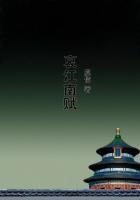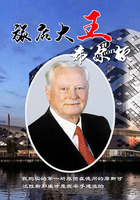Three days later, when the road was clear again, they bore him through the Pass, the General Manager placing his private car at their disposal. It was no poor funeral. It was rather the triumphal procession of a king. At every station stood a group of men, silent and sorrow-stricken. It was their friend who was being carried past. At Bull Crossing a longer stay was made. The station house and platform and the street behind were blocked with men who had gathered in from the lumber camps and from down the line. One of their number came up, bearing a large wreath of the costliest flowers brought from the far south, and laid it on the bier. The messenger stood there a moment and then said, hesitatingly, "The men would like to see him again, if you think best."
"Tell them to come," replied ****, quickly, proceeding to uncover the face. For almost an hour they filed past, solemn, silent for the most part, but many weeping as only strong men can weep. But as they looked upon the strong dead face, its serene dignity, its proud look of triumph subdued their sobbing, and they passed out awed and somewhat comforted. The look on that dead face forbade pity. They might grieve for the loss of their friend, but to him the best had come.
By Margaret's side stood Tommy Tate, till the last. "Ochone!" he sobbed, "when I think of mesilf me heart is bruck entirely, but when I luk at him I feel no pain at all." It was the feeling in the hearts of all. For themselves they must weep, but not for him.
At length, all had gone. "Could you say a word to them, ****?" said Margaret. "I think he would like it." And ****, drawing a deep breath, went forth to them. His words were few and ******.
"We must not speak words of grief to-day. He was glad to help you and he grew to love you as his friends. In his last hours he thought of you. I know you will not forget him. But were he giving me my words to-day, he would not ask me to speak of him, but of the One who made him what he was, Whom he loved and served with his life. For His sake it was, and for yours, that he gave himself to you."
As his voice ceased a commotion rose at the back of the crowd. A sleigh dashed up, two men got out, helping a third, before whom the crowd quickly made way. It was "Mexico," pale, feeble, leaning heavily upon his friends. He came up to ****. "May I see him?" he asked humbly.
"Come in," said ****, giving him both his hands and lifting him on to the platform, while a great sob swept over the crowd. They all knew by this time that it was to save "Mexico" the doctor had given his life. With heads bared they waited till "Mexico" came out again. As he appeared on the platform of the car with ****'s arm supporting him, the men gazed at him in deathly stillness. The ghastly face with its fierce, gleaming eyes held them as with a spell. For a moment "Mexico" stood leaning heavily upon ****, but suddenly he drew himself erect.
"Boys," he said, his voice hoarse and broken, but distinctly audible over the crowd, "he died because he wouldn't go back on his friend. He gave me this." He took from his breast the New Testament, held it up and carried it reverently to his lips. "I'm a-goin' to follow that trail."
Two thousand miles and more they carried him home to his mother, and then to the old churchyard, where he sleeps still, forgotten, perhaps, even by many who had known and played with him in his boyhood, but remembered by the men of the mountains who had once felt the touch of that strong love that gave the best and freely for their sakes, and for His Whom it was his pride and joy to call Master and Friend.















